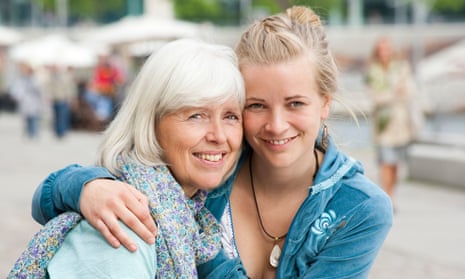After losing a baby, I now can’t stop fearing for my adult kids

Your sensitivity to life’s fragility is understandable, but there are ways to help yourself live more in the present
The question I am a mum of three, but one of my children died as a baby. The other two are now 34 and 29 and because I think I have been subconsciously trying to keep them alive ever since, I have become their go-to support, emotionally (relationships, work, lack of, friendships – anything really), financially and physically (I will drop everything to be by their side whenever necessary).
This also impacts on my husband, who provides the finances and though he is extremely generous, cannot understand the bond I have with them and why they turn to me so much (he doesn’t have children of his own and would not have dreamed of calling his own parents in such circumstances as mine call me). The problem lies with me, obviously. I worry day and night, suffer night terrors regularly as well as insomnia and I have an overwhelming feeling of failure as a parent coupled with pressure to make them happy somehow – I took antidepressants even before my twins were born because I had a difficult childhood and lost both parents at a very young age, but was determined to overcome depression without drugs because of the side-effects, but now I feel pretty much broken. How can I change and deal with this?
Philippa’s answer I feel so much for that young girl who lost her parents, and that vulnerable young part of you seems to exist within you still. I expect any sort of normal sense of security was stolen from you then. After that, why would you not fear that bad things happen to the significant people in your life? And even if you had started to recover, losing a baby would have reopened the old wound of losing your parents. Your fears are understandable.
Continuing to look after your living children even though they are now adult will be, I imagine, how you manage to regulate your emotions. I expect every time you do help them, you feel temporarily soothed. And maybe your children let you look after them because they sense this. I would think carefully about how you would soothe yourself if this prop was taken away.
I expect, unlike your husband, you cannot easily take it for granted that they will outlive you. Of course, logically you probably know they could manage well without half the support you give them. But when old trauma lies buried deep within our bones it doesn’t show itself in so many words, but is more of a free-floating anxiety or an inchoate persistent worry – you can’t just bat this away with logic. It can reappear in night terrors or flashbacks. It is not a sign that you are broken. Only a sign that you are more sensitive to the fragility of life than many of us.
READ RELATED: Danniella Westbrook undergoes stunning transformation for her 49th birthday
Unless you are disempowering your adult children with your help, because you are doing things for them they could easily do for themselves, then the very loving and close supportive relationships you have with each of them is doing them and you no harm and probably a lot of good. And if your husband is a bit jealous that you care so much for your children, I think he should count himself lucky that he is married to such a loving soul.
I must address your saying “the problem lies with me”. That you have night terrors and insomnia is a problem, but not one you can be blamed for. It is probably a form of post-traumatic stress disorder and I’ll get to treatment in a minute. Your protective nature seems to be more of a problem for your husband than you.
When bad things happen, a happy-go-lucky, go-with-the-flow approach to life is often replaced with a less flexible, more fearful way of being in the world. One of the problems with this is that when everything is going right, rather than enjoy it we can be scared it will be taken away. So, first, try to live more in the present rather than the past or future. You can do this, especially when going to sleep, by replacing worrying thoughts and focusing on the sounds and sensations of your breath.
Listen to the audiobook The Body Keeps The Score by Bessel van der Kolk with your husband, so you can learn more about the bodily held trauma response. It will help you both further understand why you have a need to continue to care for your adult children and will explain to your husband why you can’t take things for granted like others do who haven’t been through what you have. Also, listening to this book (or reading it) will help you decide which type of therapy would suit you best. I’m leaning towards EMDR therapy, or perhaps a type of bio-feedback therapy, but after reading the book you will be in a better position to decide than me.
The boomer generation didn’t need as much financial help from their parents because housing used to be affordable for many more people than it is now. It is wonderful when the older generation can help the next with today’s higher cost of living. I love you for having such a close relationship with your surviving children and if they like it, too, there is no need to pull back.
If you have a question, send a brief email to [email protected]
Source: Health & wellbeing | The Guardian




